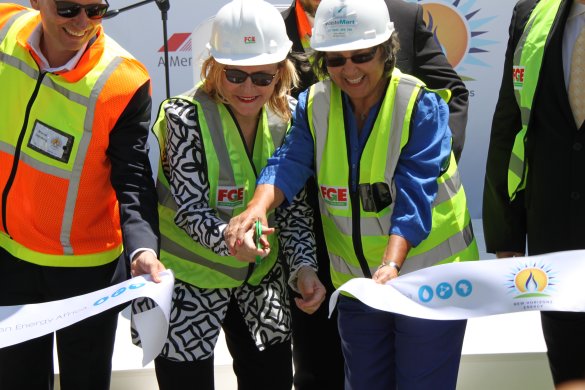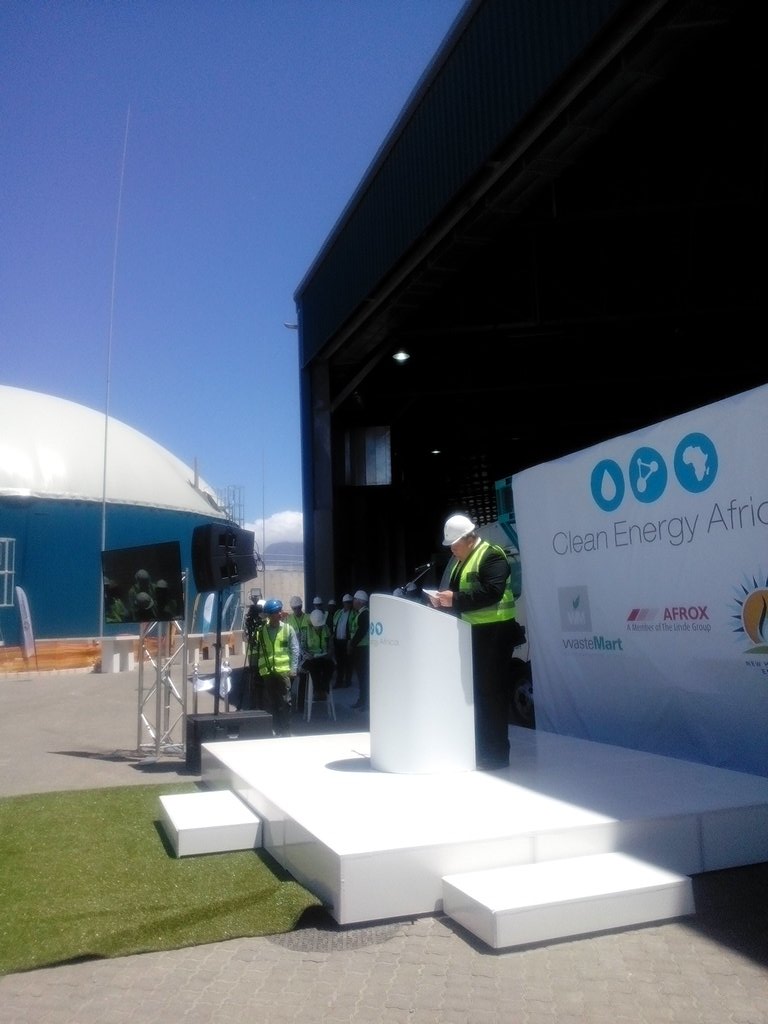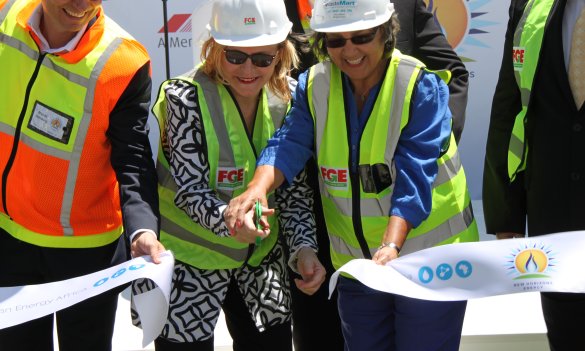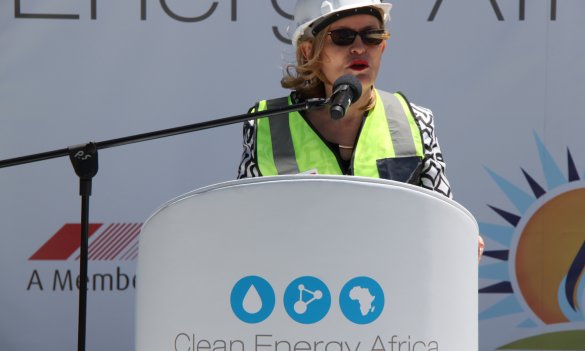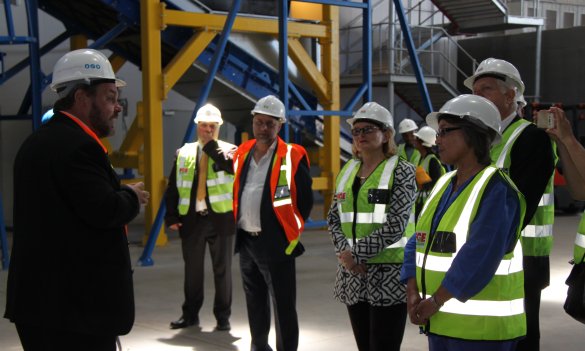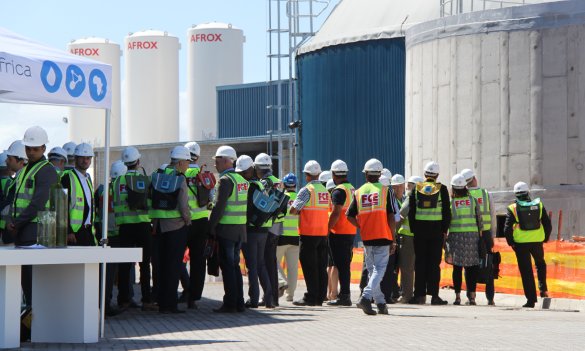Premier Helen Zille and Cape Town Mayor Patricia de Lille launched a R400-million waste to energy plant at a ribbon-cutting ceremony yesterday.
On a daily-basis, Waste-Mart trucks will deliver 500 tonnes of waste material to the plant, including everyday Municipal Solid Waste (MSW), Wet Trade Waste (WTW) and Pure Organic Waste (POW). The waste to energy plant will then convert this waste material into environmentally considerate energy and recycled by-products through a process called anaerobic digestion.
The by-products are:
- Bio gas (methane) – 18 000 litres of diesel equivalent per day, to be used by key partners AFROX;
- Carbon Dioxide: 20 tonnes, approximately 11 000 litres per day, also to be sold to AFROX;
- Digestate: 70% of organic (waste) becomes digestate, to be used in composting; and
- Recyclables: 40-50 tonnes a day.
What is biogas?
Biogas, a by-product of the waste-to-energy process, can be produced from raw materials such as agricultural waste, manure, municipal waste, plant material, sewage, green waste or food waste. It is a renewable energy source and in many cases exerts a very small carbon footprint. (nhenergy.co.za/)
Clean Energy Africa and Waste-Mart started working on the development of the plant five years ago. Western Cape Government-funded entity GreenCape has been supporting New Horizons Energy by providing the necessary technical support to establish the plant. GreenCape is also currently working with municipalities and businesses across the Province on similar initiatives.
Speaking at the launch yesterday, Mayor Patricia de Lille mentioned that the waste to energy facility benefits the environment by reducing greenhouse gas emissions and landfill expansions.
Premier Zille said: “This project aligns with the province’s Energy Security Game Changer, focused on creating the energy security needed for economic growth.”
“South Africa’s energy crisis requires a sustainable, diverse energy-mix. We are aiming to make our vision of an energy secure province a reality by 2020.”
“It is a four-fold win: cheaper electricity prices, lower carbon emissions, more foreign investment and more industrialisation. This ultimately means more local jobs.”
Some of the milestones in the Energy Security Game Changer achieved to date include the following:
- Small-scale Embedded Generation (SSEG) systems in place for five local municipalities allowing residents to generate electricity and feed it back into the grid.
- Thirteen local municipalities in the Province also now have legal frameworks in place to enable SSEG – this will allow residents and businesses to be compensated for energy fed back into the grid from solar photovoltaic (PV) panels.
- Nine of these local municipalities have approved SSEG tariffs in place (legal framework plus tariff approval by NERSA).
Premier Zille highlighted that 60 000 solar water heaters and heat pumps across the Western Cape have been installed as part of the Energy Security Game Changer.
“There are enormous economic advantages to renewable technologies, combined with natural gas. We will keep making progress on this crucial game changer.”
The facility, which is expected to start generating gas from June this year, will create an estimated 80 direct jobs and an additional 500 indirect jobs.

